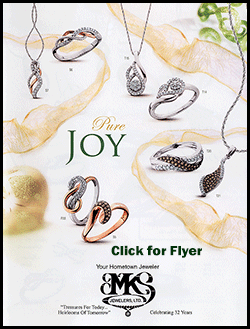|
 The 18-year-old college student from Reno, Nev., is the daughter of
two women who conceived her with a sperm donation. She's the central
figure in "Generation Cryo," which follows her effort to discover
half siblings through a registry and, ultimately, track down the
donor who gave her life. The first of six episodes debuts Monday at
10 p.m. EST. The 18-year-old college student from Reno, Nev., is the daughter of
two women who conceived her with a sperm donation. She's the central
figure in "Generation Cryo," which follows her effort to discover
half siblings through a registry and, ultimately, track down the
donor who gave her life. The first of six episodes debuts Monday at
10 p.m. EST.
The first recorded artificial insemination came in the 1800s to a
woman who didn't know she was getting it, said Wendy Kramer, founder
and director of the Donor Sibling Registry. Doctors performed the
procedure in the middle of the last century, but it was mostly kept
quiet before the practice became much more widespread with the
opening of sperm banks in the 1980s, she said.
That means enough "donor babies" are coming of age now to prompt
public interest in their experiences, evident in both "Generation
Cryo" and the new Vince Vaughn movie "Delivery Man," about a donor
who discovers he's responsible for more than 500 kids.

Kramer said she tried for eight years to get a television network
interested in a story drawn from her registry of people trying to
connect with other donor families before MTV showed interest.
"We know that our audience is interested in stories relating to
family, and this is definitely a unique and fresh take that really
makes you think about what a family is," said Marshall Eisen, series
executive producer.
Kramer admitted to some trepidation — "We didn't want to make a
reality show, 'Donor Kids Gone Bad,'" she said — but is pleased with
how it turned out.
Speicher's nose ring and adeptness with video selfies make her a
natural MTV personality and easily relatable for the audience.
Eisen's original interest was in half siblings finding each other,
but Speicher's desire to find her donor adds a richness and level of
complexity to the story.
In the first episode, she travels to suburban Atlanta to meet Jonah
and Hilit Jacobson, twin 18-year-olds who had the same sperm donor.
Besides getting to know them, her goal is to collect a DNA sample
from Jonah that's necessary to track the donor's identity.
Jonah is happy to do it, but it prompts raw emotion and feelings of
inadequacy in his father, captured by MTV's cameras. The twins'
father has gone along with them connecting with half siblings
through the registry; but the possibility of them contacting the donor
is another matter entirely. Later in the series, Speicher meets a
half sibling who is uncomfortable knowing he is a donor child, and
another set of siblings who are conflicted about learning about
their donor.
[to top of second column] |

Some donors are interested in meeting the children they helped
create, even if they donated anonymously, Kramer said. Others
aren't. The resolution of Speicher's search isn't resolved in the
first episode and, Eisen said, filming of the series isn't done.
"You think you know what to expect," Speicher said. "You think you
can handle it. But until you get to that point, there's no way to
prepare." Filming prompted "a lot of different emotions — some that
I'm probably not even aware of," she said.
The experience of finding half siblings is fascinating as they
search for shared traits: Speicher and the Jacobsons note they have
similarly large lower lips.
"They really connected, and it has a lot of meaning for them," Eisen
said. So far, Speicher has found 14 other people descended from the
same donor. She doesn't know how many are out there.
Speicher and her half siblings will soon have to deal with other
emotions as the series makes them minor celebrities. Being the
subject of a PBS documentary would be one thing for an 18-year-old,
but being visible on MTV is something else entirely.
"I opened the door to be a public figure because I truly believe in
what I'm doing," she said.

___
Online:
https://www.facebook.com/GenerationCryo
[Associated
Press; DAVID BAUDER]
David Bauder can be
reached at dbauder@ap.org or on
Twitter:
https://twitter.com/dbauder. His work can
be found at
http://bigstory.ap.org/content/david-bauder.
Copyright 2013 The Associated
Press. All rights reserved. This material may not be published,
broadcast, rewritten or redistributed. |